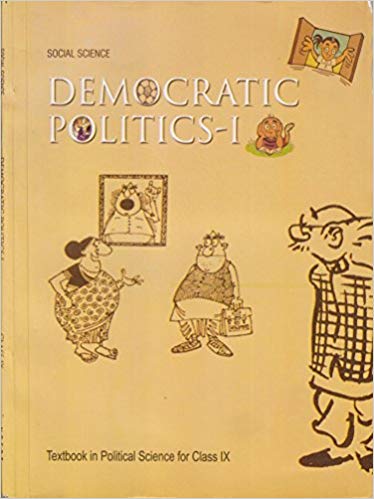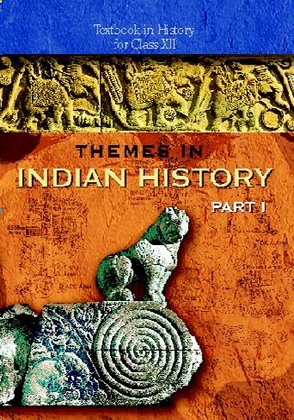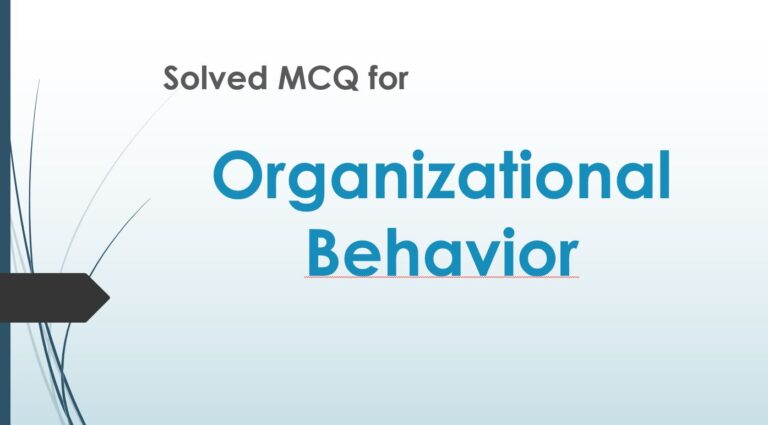Class 9 - Social Science : Democratic Politics I
Chapter 4 - Electoral Politics

Top Block 1
Question : 1. Which of the following statements about the reasons for conducting elections are false?
(a) Elections enable people to judge the performance of the government.
(b) People select the representative of their choice in an election.
(c) Elections enable people to evaluate the performance of the judiciary.
(d) People can indicate which policies they prefer.
Answer :
(c) Elections enable people to evaluate the performance of the judiciary.
Question : 2. Which of these is not a good reason to say that Indian elections aredemocratic?
(a) India has the largest number of voters in the world.
(b) India’s Election Commission is very powerful.
(c) In India, everyone above the age of 18 has a right to vote.
(d) In India, the losing parties accept the electoral verdict.
Answer :
(a) India has the largest number of voters in the world.
Question : 3. Match the following:
| A | B |
|---|---|
| (a) It is necessary to keep the voters’ list up to date because | (i) there is a fair representation of all sections of our society |
| (b) Some constituencies are reserved for SCs and STs so that | (ii) everyone has equal opportunity to elect their representatives |
| (c) Everyone has one and only one vote so that | (iii) all candidates must have a fair chance of competing in elections |
| (d) Party in power is not allowed to use government vehicles because | (iv) some people may have moved away from the area where they voted last |
Answer :
| A | B |
|---|---|
| (a) It is necessary to keep the voters’ list up to date because | (iv) some people may have moved away from the area where they voted last |
| (b) Some constituencies are reserved for SCs and STs so that | (i) there is a fair representation of all sections of our society |
| (c) Everyone has one and only one vote so that | (ii) everyone has equal opportunity to elect their representatives |
| (d) Party in power is not allowed to use government vehicles because | (iii) all candidates must have a fair chance of competing in elections |
Page 75
Question : 4. List all the different election related activities mentioned in the chapter and arrange them in a time sequence, beginning with the first activity and ending with the last. Some of these activities are given below: releasing election manifestos; counting of votes; making of voters’ list; election campaign; declaration of election results; casting of votes; ordering of re-poll; announcing election schedule; filing nomination.
Answer :
Making of voters’ list → Announcing election schedule → Releasing election manifesto → Election campaign → Filing nomination → Casting of votes → Ordering of re-poll → Counting of votes → Declaration of election results.
Question : 5. Surekha is an officer in-charge of ensuring free and fair elections in an assembly constituency in a state. Describe what should she focus on for each of the following stages of election:
(a) Election campaign
(b) Polling day
(c) Counting day
Answer :
(a) She will have to focus on various duties such as ensure that candidates cannot bribe or threaten voters, expenditure limit is not crossed by a candidate, candidates not appeal to vote in the name of religion or caste, they not use worship place for campaign or use any government resources.
(b) She will have to crosscheck the voters’ list and check ID proof of the voters, booth capturing not tak place. Ensure that Free and fair election should be conducted.
(c) She have to look on counting is carried out, represntatives of all parties present at counting area in order to avoid malpractices,
Question : 6. The table below gives the proportion of different communities among the candidates who won elections to the US Congress. Compare these to the proportion of these communities in the population of the US.Based on this, would you suggest a system of reservations in the US Congress? If yes, why and for which communities?If no, why not?
Answer :
Blacks and Hispanics should be given reservation in the US Congress as per their percentage in the US population.
Question : 7. Can we draw the following conclusions from the information given in this chapter? Give two facts to support your position for each of these.
(a) Election Commission of India does not have enough powers to conduct free and fair elections in the country.
(b) There is a high level of popular participation in the elections in our country.
(c) It is very easy for the party in power to win an election.
(d) Many reforms are needed to make our elections completely free and fair.
Answer :
(a) The Election Commission of India is powerful enough to conduct free and fair elections:
• It implements the code of conduct and punishes any candidate or party that violates it.
• In Elections, Government officials work under the EC and not the government.
(b) There is a high level of popular participation in the elections:
• Voter turnout has increased over the past years.
• Election-related activities in the last few years have seen a larger participation by the people.
(c) It is not very easy for the party in power to win an election:
• The ruling parties routinely lose elections.
• Candidates who are known to spend a lot of money often lose elections.
(d) Certain Reforms are necessary to make our elections completely free and fair:
• To ensure that indepents and small parties not suffer in elections.
• To ensure candidates with criminal records not participate.
Question : 8. Chinappa was convicted for torturing his wife for dowry. Satbir was held guilty of practicing untouchability. The court did not allow either of them to contest elections. Does this decision go against the principles of democratic elections?
Answer :
This decision does not go against the principles of democratic elections. Any person who is convicted for a crime has not right to remain a part of the society and hence has no right to contest the election.
Question : 9. Here are some reports of electoral malpractices from different parts of the world. Is there anything that these countries can learn from India to improve their elections? What would you suggest in each case?
(a) During an election in Nigeria, the officer in charge of counting votes deliberately increased the votes of one candidate and declared him elected. The court later found out that more than five lakh exercises votes cast for one candidate were counted in favour of another.
(b) Just before elections in Fiji, a pamphlet was distributed warning voters that a vote for former Prime Minister, Mahendra Chaudhry will lead to bloodshed. This was a threat to voters of Indian origin.
(c) In the US, each state has its own method of voting, its own procedure of counting and its own authority for conducting elections. Authorities in the state of Florida took many controversial decisions that favoured Mr. Bush in the presidential elections in 2000. But no one could change those decisions.
Answer :
(a) In this case, representatives of each candidate should be present to make sure that the votes are counted in a fair way.
(b) The election commission should set up an enquiry into the case and debar the candidate or party involved in distributing such pamphlets.
(c) There should be a single election commission which should be free from political influence and should be responsible for conducting elections throughout the country.
Page 76
Question : 10. Here are some reports of malpractices in Indian elections. Identify what the problem in each case is. What should be done to correct the situation?
(a) Following the announcement of elections, the minister promised to provide financial aid to reopen the closed sugar mill.
(b) Opposition parties alleged that their statements and campaign was not given due attention in Doordarshan and All India Radio.
(c) An inquiry by the Election Commission showed that electoral rolls of a state contain name of 20 lakh fake voters.
(d) The hoodlums of a political party were moving with guns, physically preventing supporters of other political parties to meet the voters and attacking meetings of other parties.
Answer :
(a) After announcement of election, it is not legal to announce policy decisions according to Code of Conduct. The minister should be immediately taken to task by the Election Commission.
(b) The election commission must enusre that all politcal party are given equal oppurtunity to appear on Doordarshan and All India Radio. EC take action against misuse of this media.
(c) The presence of the fake voters means that the elections were rigged by the authorities who prepared the electoral rolls. The election commission should supervise preparation of fresh electoral rolls.
(d) By using hoodlums, the political party is terrorising its rivals. The election commission should order the arrest of the hoodlums and bar the party from the elections.
Question : 11. Ramesh was not in class when this chapter was being taught. He came the next day and repeated what he had heard from his father. Can you tell Ramesh what is wrong with these statements?
(a) Women always vote the way men tell them to. So what is the point of giving them the right to vote?
(b) Party politics creates tension in society. Elections should be decided by consensus not by competition.
(c) Only graduates should be allowed to stand as candidates for elections.
Answer :
(a) The statement is wrong because the policy of secret ballot ensures that an individual can vote for whoever he/she wants. Women are fully capable of taking decisions on their own and selecting the candidate they like.
(b) Competition works as both deterrent and motivator for the political candidates. A fear of losing the election and a motivation for winning the elections works in favour of people.
(c) Educational qualification is not required to understand the people’s needs, and to represent their interests. Therefore, it is not necessary for politicians to be graduates.
Mddle block 1
Additional Questions
Question : 1 What are the minimum conditions needed for a democratic election?
Answer :
There are five minimum conditions needed for a democratic election. They are :-
• Everyone should have the right to vote and every vote should have equal value.
• Parties and candidates should be free to contest elections and they should offer some real choice to the voters.
• Elections must be held regularly .
• Candidates preferred by the people should be elected.
• Elections should be conducted in a free and fair manner.
Question : 2 Can elections be considered as competition ?
Answer :
Elections can be considered as a competition. It is a political competition. The competition is among political parties. At the constituency level, it is a competition among several candidates. If there is no competition, elections will become pointless.
An electoral competition also has many demerits . It creates a sense of disunity and ‘factionalism’ in every locality. Different political parties and leaders often level allegations against one another. Parties and candidates often use dirty tricks to win elections.
Some good people who may wish to serve the country do not enter this arena because of this unhealthy competition.
Question : 3 What is our system of elections?
Answer :
Elections for the Loksabha are held every 5 years. After five years the term of all the elected representatives comes to an end. The Lok Sabha stands ‘dissolved’.
Elections for the Lok Sabha are held in all constituencies on the same day or within a few days. This is called a general election. Sometimes election is held only for one constituency to fill the vacancy caused by death or resignation of a member. This is called a by-election.
Question : 4 What are electoral constituencies?
Answer :
India is divided into different areas for purposes of elections. These areas are called electoral constituencies. We follow an area-based system of representation. The voters who live in a particular constituencies elect one person to represent their constituencies.
Question : 5 How many constituencies do we have in India?
Answer :
India is divided into 543 constituencies for Lok Sabha elections. The representative elected from each constituency is called a Member of Parliament.
Similarly, each state is divided into a number of Assembly constituencies, depending on its population and it size.The elected representative of the Assembly constituencies are called the Member of Legislative Assembly or an MLA.
Each Parliamentary constituency has several Assembly constituencies .
Question : 6 What are Reserved Constituencies ?
Answer :
Reserved Constituencies are constituencies that are set aside for certain weaker sections of the society.
Weaker sections of the society may not stand a good chance to get elected to the Lok Sabha and the State Legislative Assemblies. They may not have the required resources, education and contacts to contest and win elections against others. Those who are influential and resourceful may prevent them from winning elections.
As our Constitution entitles every citizen to elect its representative, Reserved Constituencies are a necessity.
Question : 7 Who can vote and who cannot vote in India ?
Answer :
In India , all the citizens above the age of 18 can vote in an election. They have the right to vote, regardless of their caste, religion or gender.
The government gets the names of all the eligible voters and prepares the voters’ list. As new persons attain voting age names are added to the voters’ list. Names of those who move out of a place or those who are dead are deleted. A complete revision of the list takes place every five years.
Criminals and persons with unsound mind are denied the right to vote.
Question : 8 What should a citizen do if he or she wants to contest the elections?
Answer :
Every person who wishes to contest an election has to fill a ‘nomination form’ and pay a ‘security deposit’. They are requested to present a declaration. The legal declaration has to have the following details:-
1. Details of any serious criminal cases pending against them.(If applicable).
2. Details of the assets and liabilities they have and that of their family members.
3. Educational qualifications.
This information will be made public. This provides an opportunity to the voters to voice their objections, if any, and make the right decision during elections.
Question : 9 What are the two methods of voting?
Answer :
The two methods of voting are …
• The Ballot Paper
A ballot paper is a sheet of paper on which the names of the contesting candidates along with their party name and symbols are listed. The voters indicate whom they want to vote for by putting a stamp on the ballot paper.• Electronic Voting
Electronic voting machines (EVM) are used to record votes. The machine shows the names of the candidates and the party symbols. The voter has to press the button corresponding to the name of the person he wants to vote. Then the vote gets registered automatically.
Independent candidates too have their own symbols, allotted by election officials. Voting is conducted in total secrecy.
Question : 10 Why do we need elections?
Answer :
Elections are essential for any representative democracy. In an election the citizens have many choices. They are :-
• They can choose the people who will make laws.
• They can choose the government that will rule them.
• They can decide on the party whose policies they prefer.
Question : 11 What is the percentage of reservation for the Scheduled Castes and Scheduled Tribes in the Lokshaba?
Answer :
In the Lok Sabha, 79 seats are reserved for the Scheduled Castes and 41 for the Scheduled Tribes. This number is proportionate to their population. This reservation does not lessen the legitimate share of any other social group.
Question : 12 What is called a ticket in politics?
Answer :
Party’s nomination of a candidate is often called party ‘ticket’.
Question : 13 Mention a few successful slogans that were used during election campaigns.
Answer :
The most successful slogans used during election campaigns were:-
• GaribiHatao or Remove poverty.
This slogan was used by the Congress party led by Indira Gandhi in the Lok Sabha elections of 1971. The party promised to remove poverty from the country.• Save Democracy.
This slogan used by Janata Party in the Lok Sabha election held in 1977. The party promised to undo the excesses committed during Emergency and restore civil liberties.• Land to the Tiller.
This slogan was used by the Left Front in the West Bengal Assembly elections held in 1977.• Protect the Self-Respect of the Telugus.
This slogan used by N. T. Rama Rao, the leader of the Telugu Desam Party in Andhra Pradesh Assembly elections in 1983.
Question : 14 Write a brief note on the Election Commission.
Answer :
The Election Commission is independent and very powerful . It enjoys the same kind of independence that the judiciary enjoys. The Chief Election Commissioner (CEC) is appointed by the President of India. He heads the Election Commission. After his election the C E C is not answerable to the President or the government. It is impossible for the government to remove the CEC, even if it is dissatisfied with him. The powers of the Election Commission of India are as follows:-
• EC takes decisions on every aspect of conduct and control of elections from the announcement of elections to the declaration of results.
• It implements the Code of Conduct and punishes any candidate or party that violates it
• During the election period, the EC can order the government to follow some guidelines, to prevent use and misuse of governmental power to enhance its chances to win elections, or to transfer some government officials
• When on election duty, government officers work under the control of the EC and not the government.
Question : 15 What is meant by rigging?
Answer :
Fraud and malpractices indulged by a party or candidate to increase its votes, in an election is called rigging.
• Using the votes of others
• Recording multiple votes by the same person.
• Bribing polling officers to favour a candidate are considered as rigging during elections.



